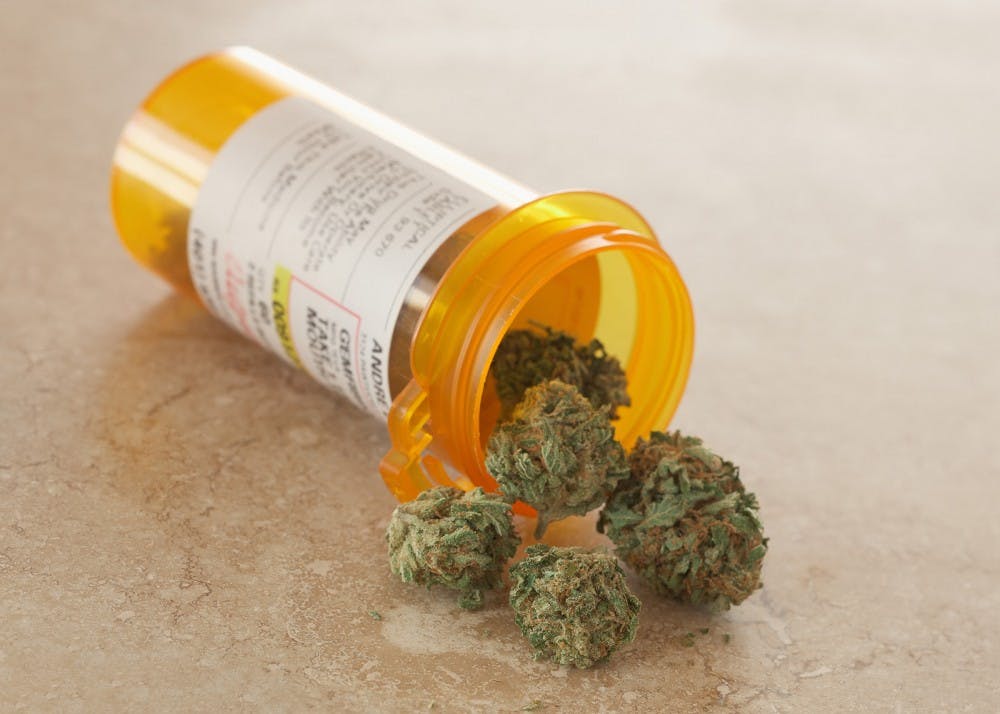As the ongoing opioid epidemic continues to ravage families in Indiana, lawmakers and voters alike need to recognize the negative effects severely harsh drug policies have had on Hoosiers.
Over the last decade, drug overdoses in Indiana have doubled and are now a leading cause of death in the state, killing more Hoosiers than car crashes per year. Opioids were involved in nearly 70% of all overdose deaths in 2018. In late 2020, the opioid epidemic still runs rampant and unchecked as pharmaceutical companies across the country have both the physicians and policymakers in their pockets.
As dangerous opioids continue to be prescribed by doctors at high rates, marijuana is still criminalized. Cannabis has been a Schedule I drug since the Controlled Substances Act passed in 1970. Despite this, there are states that have decriminalized marijuana and seen numerous benefits for those suffering from substance abuse problems. Moreover, these state economies have flourished once marijuana regulation commenced.
In order to understand the consequences of the war on drugs, one must understand the history behind America’s struggle with mind-altering substances. In the late 1960s, harsher stances on drugs became prevalent as younger generations of Americans began experimenting with marijuana and hallucinogens. The U.S. enacted federal drug policies in 1970 that organized substances in a drug class structure based on selective factors such as potential for abuse, accepted medical use at the time and accepted safety from medical professionals. These scheduling categories for controlling substances are indicative of a “hard on drugs” policy approach.
These severe policies were racially motivated and only further grew the illicit drug trade in America. Mass incarceration became commonplace, and the expansion of the prison-industrial complex was fueled by drug-related convictions. Cartels in Mexico began to grow marijuana and export their supply north in order to take full advantage of these new policies by profiting off American consumers who still had a demand for marijuana.
Fast-forward to the 21st century and cartels began to shift their production to opium as recreational cannabis slowly became more widespread within the states. Meanwhile, companies such as Purdue Pharma lobbied doctors to overprescribe their opium-derived products. Some patients became addicted to these pills and sought illicit drugs once their prescriptions ran out. In turn, the cartels benefited because they’re ultimately the producers and distributors of most black-market opium in America.
This leads us to today, with the opioid epidemic negatively affecting millions of families in the Midwest while pharmaceutical companies and gangs operate under the government’s nose to profit off unjust drug policies.
Purdue Pharma has finally been brought to justice for their role in the opioid epidemic, but this comes too late for the thousands of Americans who have already lost their lives. An $8 billion settlement can't bring people back from the dead.
The only reason people are in this situation is because harsh drug policies that have downright failed this country. Policy experts for drugs around the world have given recommendations consisting of decriminalization and emphasis on addiction treatment in countries such as Portugal and Switzerland that have faced mass addiction problems within their populations. All of these drug policy experts recommend the exact opposite of what most uninformed congressmen propose in their legislation. It’s about time lawmakers and voters in Indiana push for some sort of reform to mitigate the negative effects that have come from the war on drugs.
In 2015 and 2016, 45.8% of the U.S. population used prescription drugs in the past 30 days. In the last decade, prescription rates have been in slight decline and decriminalization would further help in driving this number down. Marijuana in any form is far less dangerous and addictive than consuming prescription-based opium derivatives. The lethal dosage of 99% of prescribed drugs is far lower than the lethal dosage for cannabis. In other words, you’d have to consume pounds of cannabis before suffering a lethal reaction. There have also been zero deaths directly caused by marijuana.
In the last few decades, legislation passed in Indiana to curb the use of cannabis has been classified as “some of the harshest in the nation” by the Marijuana Policy Project. Possession of a single joint in the state can lead to a year of incarceration and fines upwards of $1,000. Black Americans are incarcerated at a much higher rate and are 3.5 times more likely to be arrested for cannabis possession charges than white Americans, despite similar rates of drug use.
The need for decriminalization within Indiana is obvious after considering the history of drug-related policy in America. The history of drug use in this country is convoluted and complicated, but education is necessary for logical policy proposals. Decriminalizing marijuana within the state of Indiana would not only help those with substance-use disorders, but also help dampen the negative effects the war on drugs has had on people of color.
Kishan Dhulashia (he/him) is a sophomore studying business economics and public policy. He’s currently involved on campus with Indian Student Association as the photography and videography chair.






